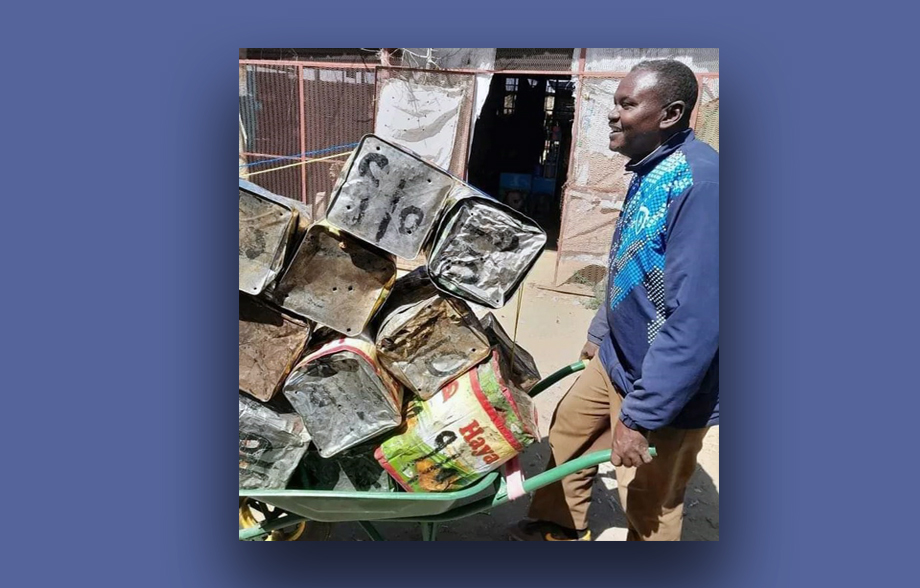
Sudanese Journalists Under War: From Journalism to ``Dardaga``
moatinoon
The image of journalist Abdelaleem Makhawi driving a "hand-pulled cart" in one of the markets in Kosti city has once again highlighted the conditions of journalists in Sudan amid the ongoing war since last April.
Social media circulated and several news platforms published a picture of Makhawi driving a cart in the "Al-Mulja" market in Kosti, the largest city in the White Nile State, south of Khartoum, where he had relocated following the outbreak of war in the capital.
Abdelaleem Makhawi, a journalist who worked for several newspapers and a private radio station, was forced to move to Kosti about 6 months ago, according to the circulated text.
His story recalls the plight of his colleague, journalist Rami Mahkur, which gained attention in September of the previous year. Rami, in turn, had to work as a street vendor to make a living after the radio station where he worked in Khartoum was closed.
In a Facebook post with a picture of him driving a cart, Rami wrote, "I work at Hala Radio, and of course, the institution stopped because its location is in the Kuwaiti building near the Presidential Palace, which is a dangerous conflict zone, and work is impossible. After that, I moved to the White Nile State and started working in the mobile advertising market. We produce advertisements according to demand. We do not insist on prices because we appreciate the peoples conditions and the countrys situation. Things are going well, thank God. After that, we tried to work in other professions, including Dardaga (hand-pulled cart), but we did not succeed. Nevertheless, we resist through some small businesses to survive."
Mortada Ahmed wrote in a news report in September of the previous year, "Rami was just one of hundreds of Sudanese journalists whose paths have been severed, whether internally displaced or refugees in neighboring countries. Their work has stopped due to the complete closure of local newspapers, radio stations, and television channels where they used to work, while independent journalists and correspondents for international and regional media face extensive restrictions from both warring parties."
Waleed El Nur, the social secretary of the Sudanese Journalists Union, recently stated that more than 600 journalists have lost their jobs, and local, private, and government newspapers and channels have stopped, and their buildings have been destroyed since the war broke out on April 15th of the previous year.
He added, "Sudanese media professionals circulated pictures and videos of their colleague Mohammed Kashan working as a fish vendor inside residential neighborhoods, using an open car. The same goes for journalist Omar Rango, who opened a store selling perfumes and accessories in the city of Kosti in the White Nile State, south of Sudan."
Ali Eltahir reported in another report in "Citizens," titled "Journalists... War Tears Apart the Troubled Profession," quoting journalist Khidir Masoud, the managing editor of "Al-Youm Al-Thalith" newspaper, saying, "Some of us sell clothes, while others work in credit transfer. There is a third group still looking for work amid extremely difficult financial conditions due to the cessation of income sources."
The Sudanese Journalists Union is struggling to assist journalists and announced last month that it financially supported 207 journalists during the past ten months, including 187 journalists in the war-affected states and those displaced to safe states.

